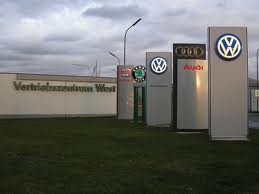 Car sales in Europe were up by 5.2% during January, helped by increases in countries previously hit with crisis such as Italy, Ireland, Portugal and Greece suggesting an economic recovery was gaining pace.
Car sales in Europe were up by 5.2% during January, helped by increases in countries previously hit with crisis such as Italy, Ireland, Portugal and Greece suggesting an economic recovery was gaining pace.
The ACEA or Association of European Carmaker announced Tuesday that car sales in the European Free Trade Association and the European Union had totaled 967,780 vehicles for January.
The car industry across Europe had endured a slump of six years, with sales dropping to a low point of 20 years as consumers hit with austerity measures cut back on purchases of expensive items.
Car manufacturers said they were cautiously optimistic about the latest sales figures released for the region.
One big question remains and that is how much of the recovery is an organic one and how much is from the actions that carmakers and governments have taken.
This refers to the big discounts and subsidy programs that have helped to revive the purchase of cars.
Hyundai, which recorded a drop in sales for January of 5.5%, said it was not going to pursue gains in market share at any cost.
The ACEA said sales of cars in the EU had now risen for the fifth consecutive month.
All the major markets in Europe reported an increase with Spain and Britain up over 7.6% and Germany increasing 7.2%, while France and Italy enjoyed increases of 0.5% and 3.2% respectively.
Amongst the auto markets that are large in Europe, just the Netherlands saw a drop by 7.1%.
Sales in several smaller countries that were affected the most by the debt crisis in Europe saw big increases with sales up by 33% in Ireland, by 32% in Portugal and by 15% in Greece.
Up-market and value brand vehicles both appeared to benefit by the new growth in January.
Sales at the Renault Group were up 13% helped mainly from a surge of 38% in registrations of its Dacia no-frills brand.
